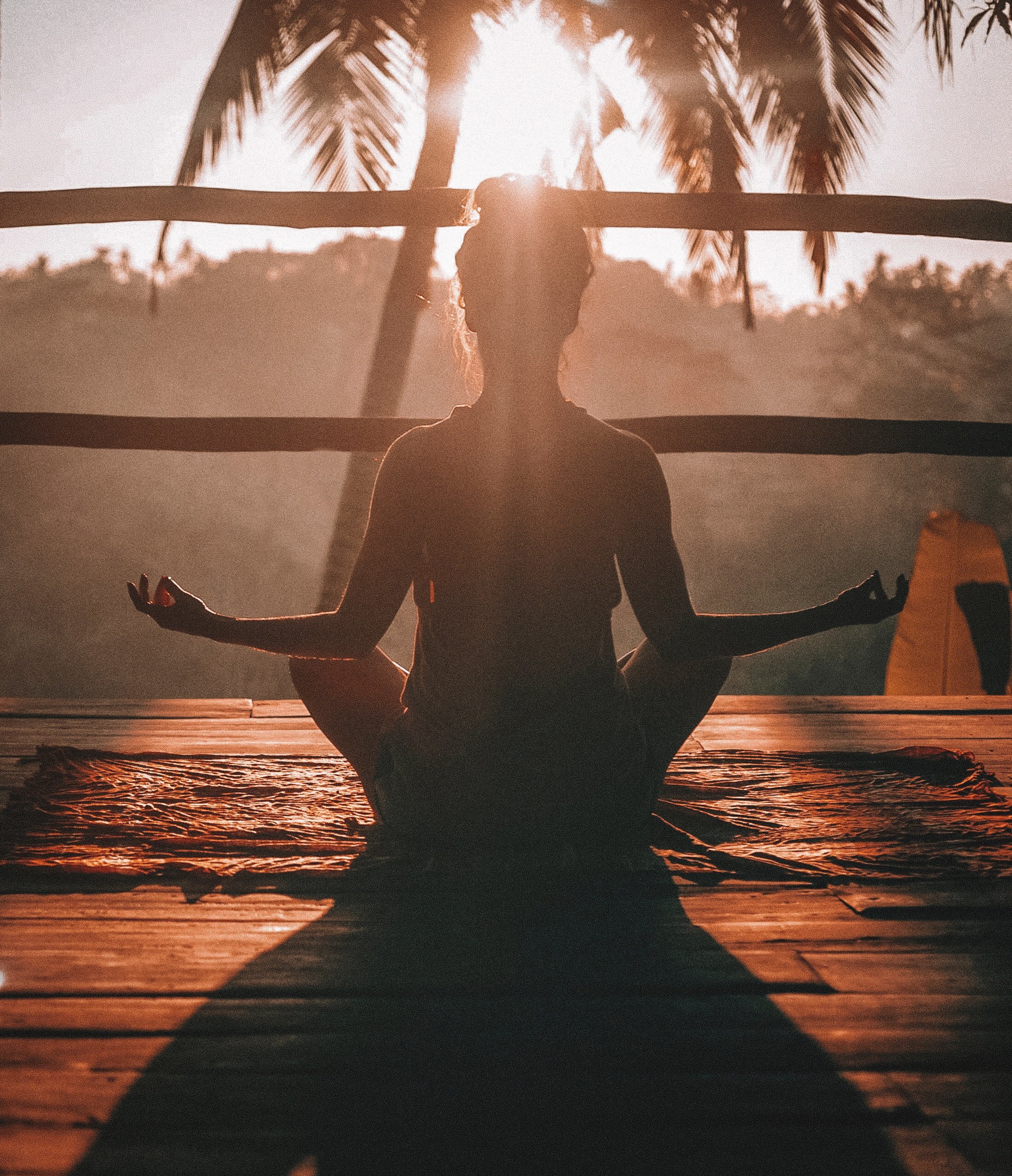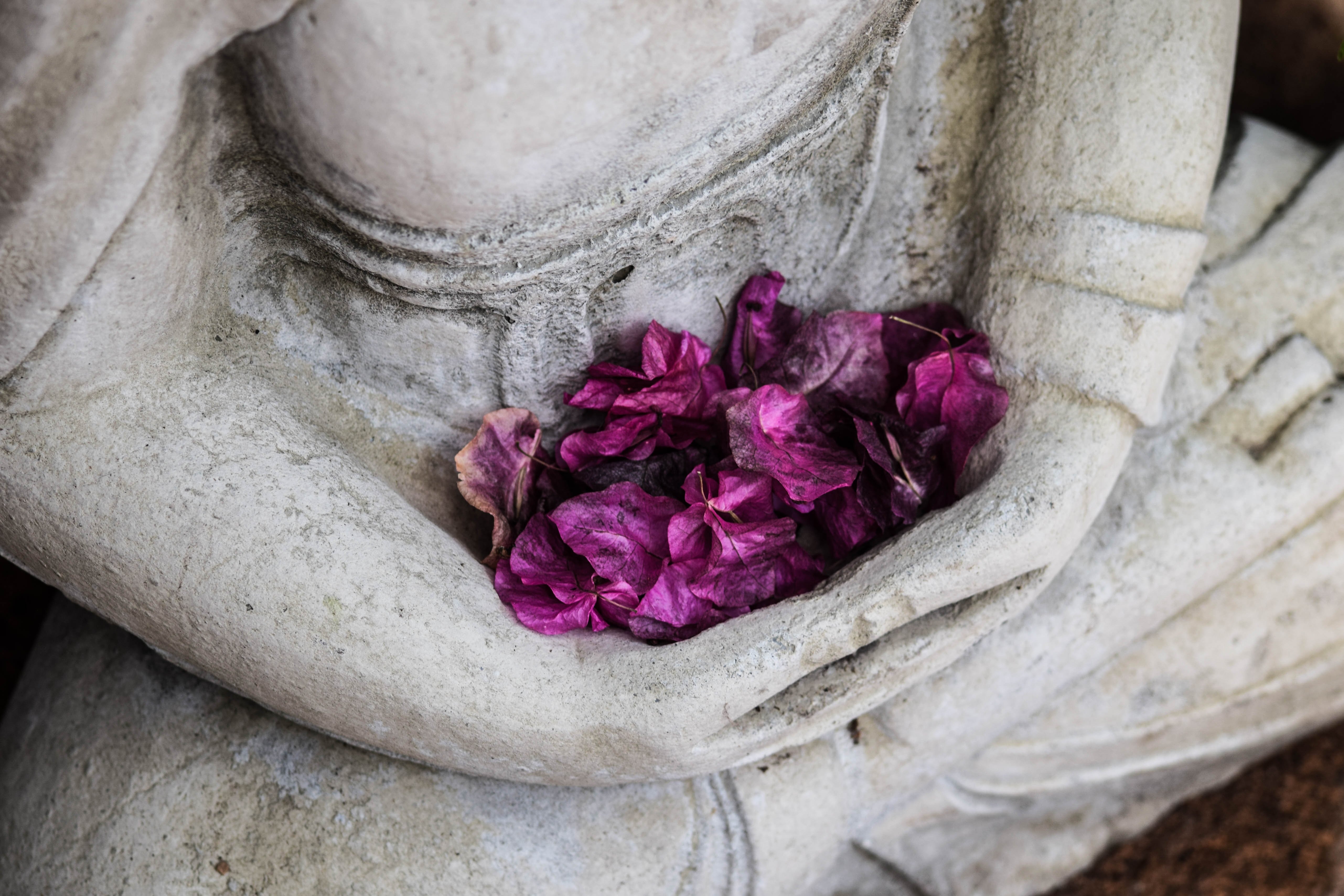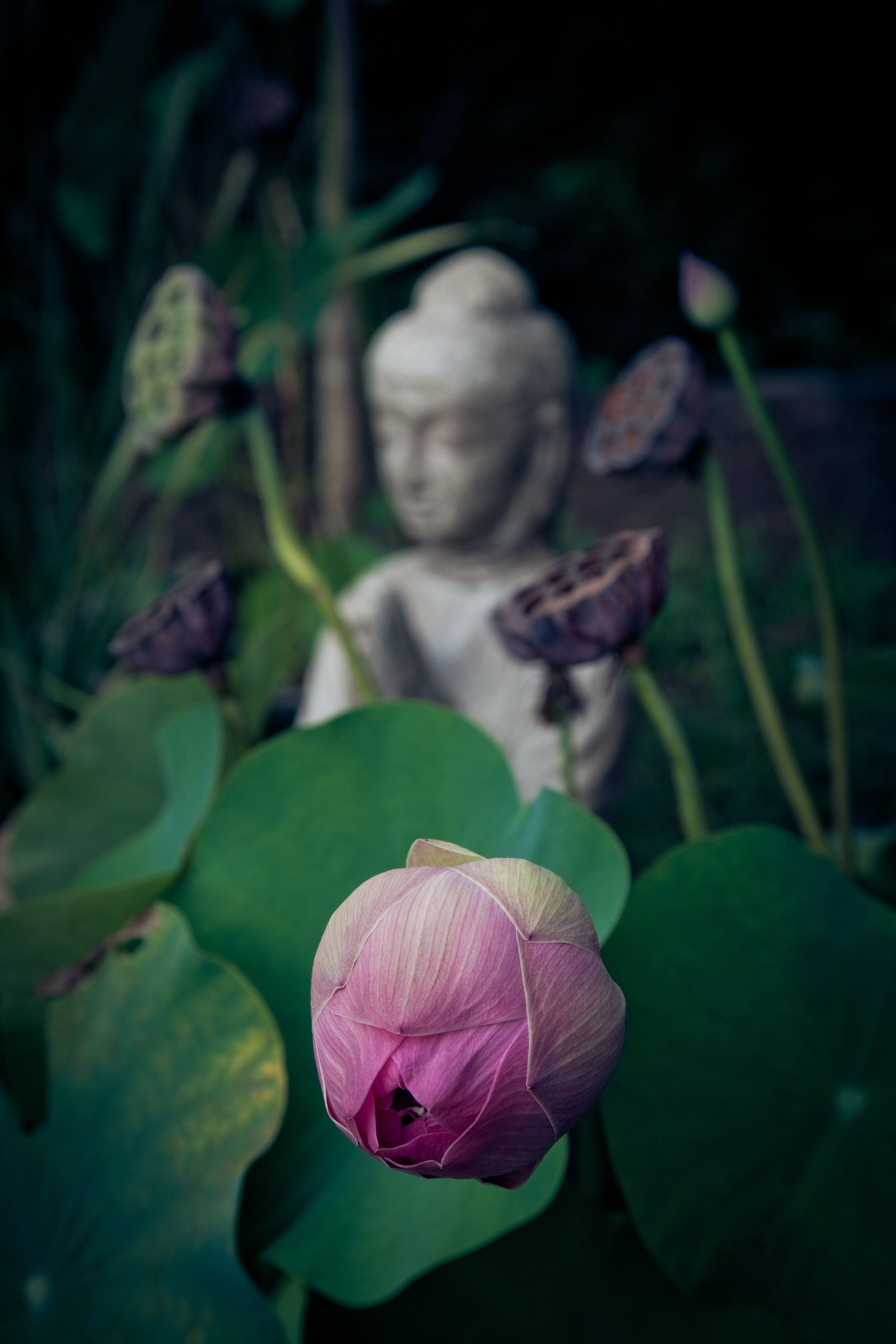For thousands of years cultures around the world have known about the benefits of meditation and have woven the practice into their daily lives. Meditation is not just a way to relax or clear your mind, it has been used for millennia to raise consciousness and connect us with the divine.

Photo by Jared Rice on Unsplash
Meditation for many of us has become a sort of buzz word. Meditation is touted as a way to help you relax, get better sleep, lower stress and improve mental functions. And while meditation does all of those things, they are just a few of its wonderful byproducts. If you look at the complete picture of what meditation is and what it was originally intended for, the benefits of meditation go much deeper. A devoted practice can help not only feed the physical as well as the psychological aspects of ourselves, but can also connect you to your spirit, fostering self awareness, and filling you with feelings of compassion and loving kindness. When some are in a deep state of meditation, they are able to activate the pineal gland (also known as the third eye) – a small pine cone shaped gland that sits in the centre of the brain – and is thought by many cultures to be the doorway that leads from the physical to the spiritual worlds. The pineal gland is extremely sensitive to light, and this is why in many ancient cultures, serious meditators have always engaged in long periods of meditation in complete darkness. This darkness activates the pineal gland and allows humans to traverse from the physical to the spiritual worlds and gain insights into the nature of life and the cosmos as well as connect with the universal energy (of which we are all a part). These experiences remove the body and the ego completely and allow a person to shed their worldly trappings and feel what it is like to be in complete oneness. This has been described by some as what it is like when we “die”, leaving our bodies and returning to source energy.

Photo by Chris Ensey on Unsplash
Science & Spirituality
It is only in our recent history that science and spirituality have been broken into two separate entities. They used to be considered part of the whole of things – the macrocosm, neither being able to exist without the other. But things started to change – subjects were broken apart and people began to specialize, meaning it became more difficult for anyone to see the whole picture. With the world as it is now, with its focus on science, it is difficult to accept that science and spirituality were at one time inseparable. Many ancient cultures had a holistic view of life and the cosmos, and their lives were part of a vast web that included all of nature and indeed, everything in existence. As a species we have become so identified with our minds and especially our thoughts, that this connection to the whole, of all there is, has largely been lost. We have slowly separated ourselves from the world that we came out of and have become more and more identified with our thoughts – one tiny aspect of who we are.
Impermanence – Anicca
Ancient cultures around the world realized what to us living in the modern world seem to have forgotten – that life is a microcosm of the universe itself, and is in a constant state of change. The only constant is change itself. This is what the Buddhists call “anicca” which literally means impermanence. This knowledge did not cause worry or fear as it might today, but a sense of calm and peace, the acceptance of the way things are, and that everything rises and passes away in an unending cycle. As a culture, we are taught to yearn for things or experiences that are desirable or cause us to feel pleasure, and to avoid painful or negative experiences. The acceptance of anicca in ones life is actually quite liberating. Instead of spending energy craving or avoiding things, you just accept everything as it comes, not judging it to be good or bad but simply allowing it to happen and then, inevitably, to pass away into the ether.
The Benefits of Meditation in Modern Life
The benefits of meditation are particularly compelling and needed at this time in our history. Many people live more unnaturally than they ever have, working long hours in offices in front of computers, living in huge buildings alone in tiny apartments, eating at their desks, consuming foods that are processed and made in factories, not getting enough sleep, spending little to no time outside and always in a hurry. Does this sound familiar? If this is not you, then you are fortunate, but it is the life that many of us have – often out of necessity. We also have problems like violence, addictive behaviours, mental illnesses and suicide in unprecedented numbers. Our modern lives, and the fast pace at which we live them, have caused us to lose the connection to ourselves and to others. So many of us are sick, sad and lonely and struggling to live lives with the most basic of necessities. Also, for the first time in a long time, life is not getting better for each subsequent generation, it is getting harder. The political, and economic landscape has become divisive, corrupt and many people are losing faith in their ability to live a happy, fulfilling life.
The gift that meditation can give you is a chance to slow down. It is amazing all the sounds you can hear in the silence. It is amazing what happens when you slow down and LISTEN. Going outside and sitting in the grass quietly, you will begin to hear that nature has a hum that you have never heard before. It is communicating with you, it has always been communicating with you, but you have never been able to hear it. The natural world speaks a language that we have all known since the dawn of time, but our lives – the way we are living our lives – are drowning it out and we have slowly forgotten it.
Our fast paced, hectic lives take a toll on us on many levels. Physically they exhaust our adrenal glands (the glands that sit on top of our kidneys and manage our fight or flight responses to perceived threats or danger). Due to the high levels of stimulus constantly coming at us, our nervous systems are overworked and easily become exhausted leaving us feeling frazzled and anxious. Many of us are overworked and under-slept not giving our bodies time to heal, relax and play that they desperately need. Some may need to work more to pay off debts, school loans or support families, parents or grandparents. It has become increasingly difficult to live a balanced life in an unbalanced world. With the widening gap between rich and poor, life for many is getting harder and not easier putting even more stress on us individually and as a species.
With this constant focus on the external world, which is where we must focus at least some of our energies if we are to survive, there is little time to look inward and cultivate our inner worlds. This includes the cultivation of our spirit which contributes to our health and wellbeing. It also allows us to remove ourselves from the world of the physical, detach from our ego’s and reconnect with the one universal energy.
Meditation & Health
Meditation is something I recommend to all my patients. In my opinion, there is not a single person that would not benefit from meditating regularly. It does not require any expensive equipment, any in depth knowledge or adherence to a specific set of beliefs or a level of physical fitness. All you need is the desire and a little time.
I usually recommend starting slowly to help get your body and mind into the habit. It can be overwhelming at first and many experience what can be quite an intense “monkey mind”. That is the mind racing from one thought to another and never seeming to quiet down. This is normal. If you think about it, we rarely simply allow our minds to wander – letting them move from one thought to another without pulling them in one particular direction. We are constantly tasking them with specific things, forcing them to focus and never really allowing them to relax and for our thoughts to meander as they like. So, when you begin, your mind tends to sort of freak out, having never been allowed to run free before, it runs wild and in all directions at once. I find that starting slowly helps, and after a few days or sometimes weeks, your mind starts to quiet down. There are many, many meditation techniques out there, and if you like, you can find one that resonates with you, but for the beginning I simply tell patients to get to a point where your mind is quiet. Once there, focus on your breathing and the physical sensations on the body. Just observing them. The wind hitting a spot on your arm. The breath as it enters your nose. The smell of a flower growing just outside an open window. The mind will inevitably wander, but you must not get frustrated, you simply kindly and gently bring yourself back to the breath. Twenty minutes in the morning and twenty minutes in the evening is ideal and you will find that just this small thing will have a positive effect that will ripple through your entire life.
Meditation Benefits
There are numerous benefits to maintaining an ongoing meditation practice for body, mind and spirit. They are:
- Improves memory, concentration and clear thinking
- Improves quality and quantity of sleep
- Decreases anxiety and stress
- Builds a sense of wellbeing
- Deepens our sense of compassion and insight
- Nurtures a sense of joy, peace and love
- Helps to build connections within ourselves and with others
- Helps us to process and manage our emotions
- Cultivates personal growth and self discovery
- Helps to connect us to our inner selves
- Separates us from the ego and helps us to connect to source or universal energy
- Beginners Meditation Tips
- Start Slowly – Just 10 Minutes at a Time is Great
- Find Time Everyday – Preferably Morning, Evening or Both
- Find a Comfortable Seated Position
- Be in a Room with No distractions – Clean & Quiet with Good Energy
- Expect Your Thoughts to Run Wild at First – They Will Calm Down with Time
- Focus on Your Breath – Whatever Thoughts Enter Your Head, Just Gently Return to the Breath
- Be Kind to Yourself – It Takes Time!

Photo by Sarah Ball on Unsplash
Meditation for Everyone
In conclusion, I think it is exciting that meditation is getting so much positive attention these days. Scientists are now beginning to be able to prove its positive effects on the brain and body, and many cultures have known its benefits on all aspects of our beings for centuries. Even though I am a practitioner of Chinese medicine, I always stay open to all possibilities that can bring healing to us on any and all levels. Meditation, for me, has been one of the best healing tools that I have discovered. Like anything, there are layers to it and it depends on what you goal is when you begin, but I have found that one of the best things about meditation is that when you spend time in the silence, there is a unique opportunity to delve deeply into yourself, and that if you are willing to listen, this is where the answers to all the questions that you have ever asked lie. It has been a reminder that inside us is everything that we have ever needed to be healthy, happy and divine beings.
By Emma Suttie, D.Ac, AP from ChineseMedicineLiving.com
. . . . . . . . . . . . . . . . . . . . . . . . .
For more about how to use Chinese medicine principles to live a healthy balanced life,
please visit ChineseMedicineLiving.com
